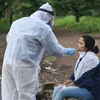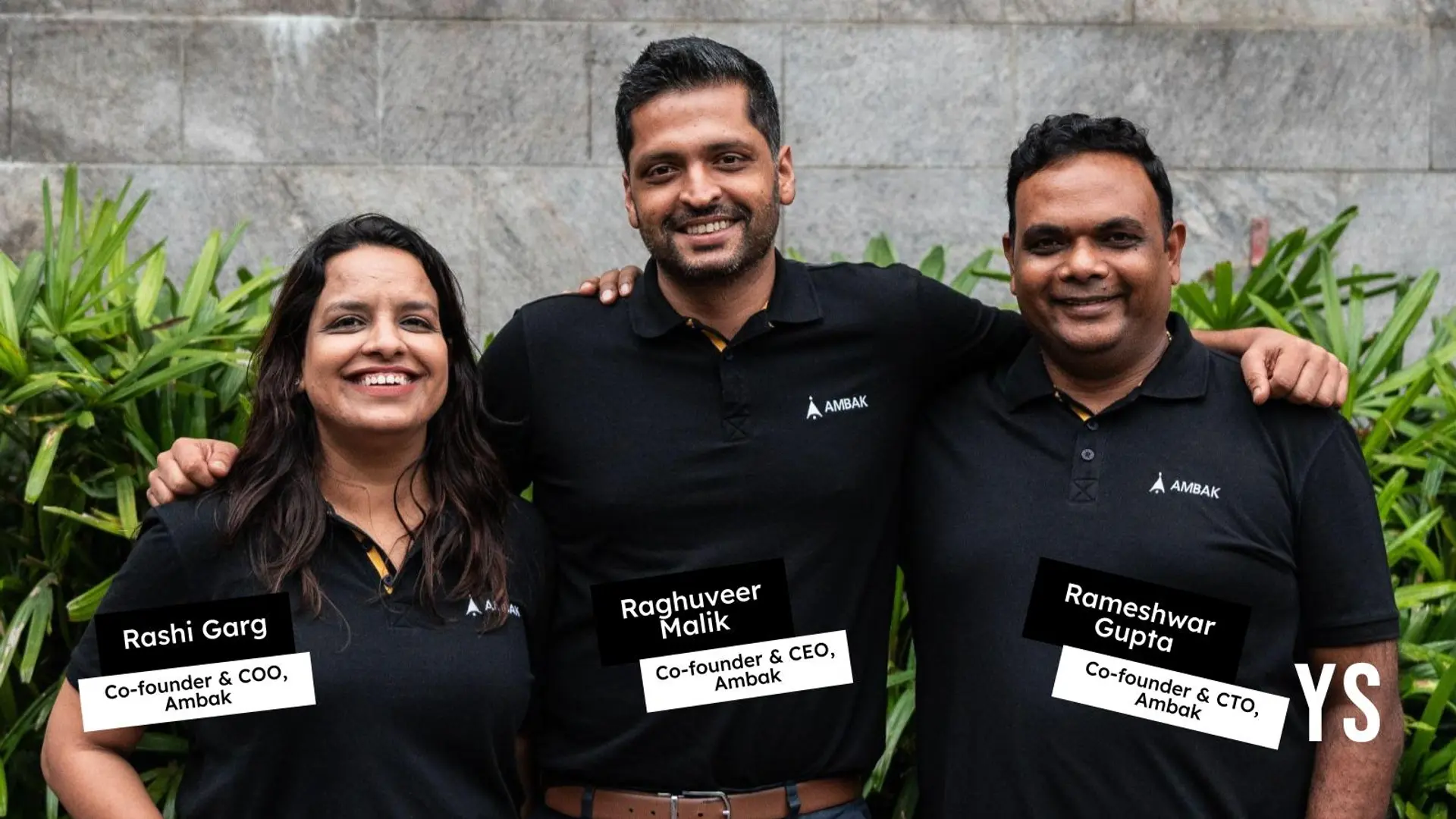This non-for-profit collaborative has delivered over 1.7 lakh services amidst the COVID-19 pandemic
COVIDActionCollab is the brainchild of the Catalyst Group that has been active in the social impact space for 26 years, responding to humanitarian emergencies across India.
For 35-years-old daily wage worker, Alamelu, and her husband Mariappan, who worked at a nearby bakery, the COVID-19 pandemic overturned their lives. Without jobs and a ration card, and a young son to take care of, the family was deprived of food for a few days.
After noticing the family’s plight, Alamelu’s neighbours reached out to Swasti Health Catalyst, who provided the family with the immediate monetary assistance that helped them sustain the lockdown through their Factory workers programme.
Swasti is one of five member organisations of the social enterprise platform . For 26 years since its inception in 1994, the group has been responding to humanitarian emergencies, including the Kerala Floods (2018), Cyclone Gaja (2018), Tsunami (2004), and Latur (1993), among others.
The Bengaluru-headquartered group operates five organisations — Catalyst Management Services (CMS), Swasti, Vrutti, Fuzhio and GREEN Foundation. Its multiple organisational formats support investments of various kinds, including grant, equity, debt, impact investments, donations, and more.
COVIDActionCollab (CAC) project is the brainchild of the Catalyst Group of Institutions, which seeks to promote the health and wealth of vulnerable communities amidst the pandemic.
COVIDActionCollab
COVIDActionCollab aims to support individuals who need health, livelihood, finance, food, and social protection. Through this project, the group provided on-ground relief and recovery assistance to 10 million people belonging to vulnerable communities with a comprehensive COVID-19 support package.
“We developed a plan and strategy to reach this population with a comprehensive COVID-19 support package, including a plan to train 100 organisations to help with the same,” Shiv Kumar, Founder and Director, Catalyst Group, tells SocialStory.
“We have put together a strategy to reach 10 local governments with five COVID-19 packages to support the local government bodies and are actively working with partners on it,” he adds.

Food distribution as a part of the project
Amidst the pandemic, COVIDActionCollab focussed on providing community-based screening at regions prone to major COVID-19 outbreaks, owing to the poor sanitation facilities and overcrowding. The group first targeted the slum settlements in Govandi in Mumbai, among others.
CAC also developed sewage surveillance data from the Bilkehalli and Hongasandra wards, Bommanahalli, Seshadripuram, and other regions in Bengaluru, which served as an Early Warning System to help state and local health departments detect, understand, and respond to the COVID-19 pandemic.
In fact, its Sanitisation and Hygiene Entrepreneurs (SHE) programme built a tribe of ‘hygiene entrepreneurs,’ who conducted on-demand sanitisation of public and private spaces in gram panchayats.
As of November 2020, more than 300 SHEs are working in 20 clusters, earning over Rs 200 (twice the minimum wage of unskilled labour) in average daily income. The programme has generated Rs 15 lakh income for SHEs, who have sanitised over 100 lakh square feet in various gram panchayats.
“Another area of focus is building economic resilience of vulnerable communities so that they can manage future shocks and setbacks. We also worked towards reducing the stigma around COVID-19,” Shiv Kumar says.
Under its education vertical — led by impact investor Darshak Vasavada — CAC launched the 'Tabs for 1 Million Children' initiative to provide custom made, affordable, and durable tablets to digitally-excluded, low-income families pan India. These tablets come pre-loaded with classroom curriculums to enable children’s learning.
As part of its ‘Solutions Circle,’ CAC aims to tackle the PPE kits and mask wastes, and their effect on the environment, thereby creating sustainable solutions that work at scale, and have buy-in from all key stakeholders.
Impact
To date, COVIDActionCollab has helped women, children, rural and urban poor, sex workers, migrants, transgenders, farmers, artisans, factory workers, MSMEs, and PWDs across all states and union territories of India.

Image: COVIDActionCollab
Through its network of 298 CAC partners and over 1,937 volunteers, COVIDActionCollab has been successful in reaching out to vulnerable people in 712 districts, providing over 1.7 lakh services in different verticals.
“When the lockdown hit, the transgender community was among the worst-affected with most of them losing their livelihoods and finding themselves in debt, struggling to get through those tough months. CAC supported over 300 members of CMTNS with food and essential supplies. We would not have survived the lockdown period without this help,” says Achukutty, Secretary of Coimbatore Mavatta Thirunangaigal Nala Sangam (CMTNS) — one of CAC’s beneficiaries.
Preetham Rodrigues of Inchara Foundation says the organisation was able to leverage the Collaborative’s network to find volunteers and resources. Inchara Foundation is also a partner of the CAC.
“Some Collaborative members had PPE kits, which they were able to supply to the Inchara Foundation for distribution. Another key benefit of the CAC was the platform provided for knowledge exchange and knowledge sharing,” he says.
He adds, “This component allowed the Inchara Foundation to reach people more quickly as it could efficiently redirect its resources. Finally, it is important to note that tapping into the Collaborative network and connecting with other members helped to prevent duplication of work and efforts.”
Challenges on the way
At present, CAC is funded by the Catalyst Group and an undisclosed partner, where some funds for directed towards programme actions of mutual interest. A few partners, particularly from field organisations, serve as regional partners for their calibrated services, time, and expertise.
However, the COVID-19 related funding diversion by existing donors has led to a precarious financial situation of the organisations working for these communities.
“Without funds for this critical aspect, institution building is impossible, and in many cases, the current pandemic may leave these institutions weaker rather than stronger,” Shiv says.
In fact, when funding is available, it is largely for field service delivery, leaving little or nothing for organisational building. For this, CAC invited funding organisations to become CAC’s strategic partners, which provides funding and technical support and connections to emerging specific areas/solutions.
“The scale, diversity, and ambition of CAC are huge. With a few specific partners for technical and resourcing support, and a large number of field partners, and others, our ambition can be achieved. The key is to align all these efforts and focus on addressing the needs of vulnerable groups and the larger ecosystem,” says Shiv.

Mask distribution among the poor
Another challenge faced by the CAC is the delivery models. These models are sub-optimal, either costing too high or ineffective or both. The institutions working in this area tend to invent their own strategies for community engagement and service delivery, Shiv adds.
Talking about the road ahead, Shiv says, “We, at CAC, are committed to ensuring the most vulnerable survive and thrive with dignity during COVID-19 and any future humanitarian crises.”
“We want to leverage the power of collaboration and amplify manifold everyone’s efforts to address the impact of the pandemic on vulnerable populations. We see a strategic partnership with an agency, such as Skoll Foundation with a vision, value, and aspiration, to bring large-scale changes that will accelerate and deepen our efforts, and add value to the foundation’s intent for overall impact and scale,” he concludes.
Edited by Suman Singh








